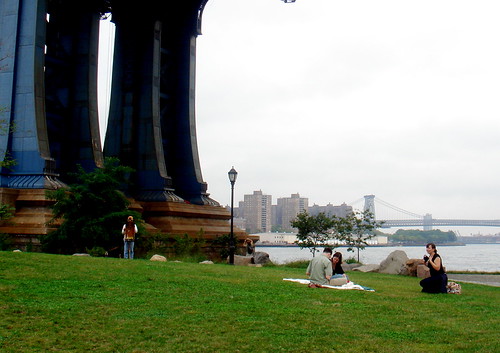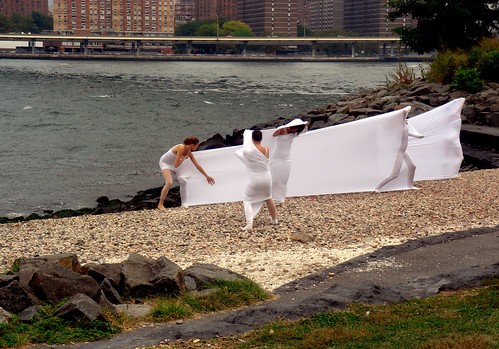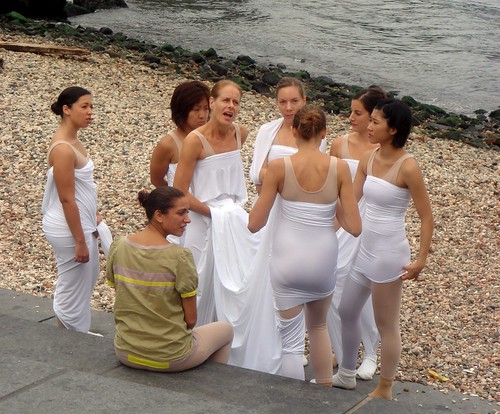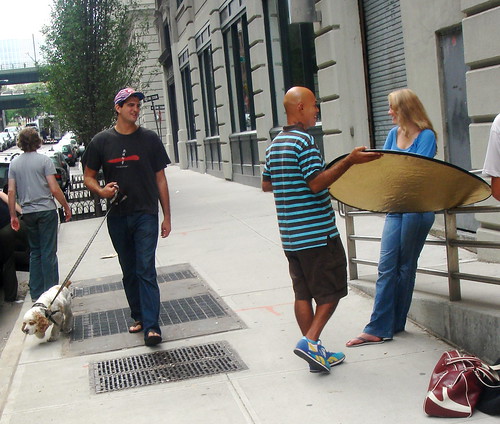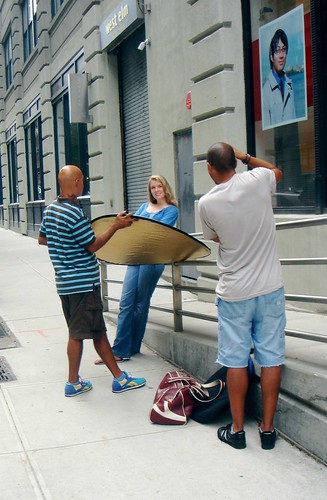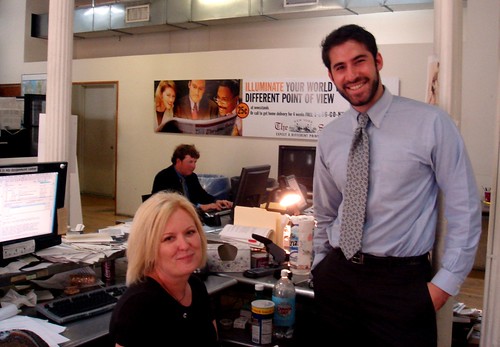Lawprof Michael Dorf is writing about the UC Irvine/Erwin Chemerinsky affair. (Via
TaxProf.) He's saying that it wouldn't really have been worth it for Chemerinsky to devote his "enormous talent and energy" to transforming legal education at a school that wasn't already top tier:
Even solid but middling-ranked law schools can have at best a marginal impact on the course of legal education as a whole because no matter what they do to improve the actual outcomes for their students, they won't attract the very best students---and I doubt that, on average, an excellent innovative education for a mediocre student will produce better lawyers than a pretty good traditional education for excellent students. This explains why Yale Law grads---many of whom learn virtually no law at all while in law school---prove to be excellent lawyers; they have the credentials coming in.
That first sentence is a strange conglomeration of ideas: 1. Students who don't win admission to top tier schools are "mediocre." 2. It's not worth much to transform legal education at one school unless you can affect "the course of legal education as a whole." 3. A top legal educator ought to want to develop new teaching methods on the students who would be the most effective learners under
any teaching method. 4. A law professor ought to want to produce the "best lawyers," so, naturally, starting with the "best students" is preferable.
I have a few reactions: 1. Students who don't get into top tier schools don't deserve to be called "mediocre." 2. If you want to test the effectiveness of new methods, what can you prove if you start with students who will do well following
any method? 3. If you are truly interested in teaching methodology, you should want to have the greatest
effect on the students you reach, not simply to be able to point to successful graduates who began law school so far advanced that they would have done well even if they hadn't been taught
anything. 4. Law professors ought to know when they have snobby, elitist opinions and to make some effort to hide it.
UPDATE: Dorf responds to my comments
here. He says I "accuse[d him] of being an elitist snob." Well, now, I only insinuated that he might have "snobby, elitist opinions" (and not enough sense to hide it). But, okay, I guess that is basically accusing him of being an elitist snob. I was trying to be a little polite about about it. I believe Dorf concedes that he is elitist. He then addresses what he calls an "objection" of mine, which he restates as: "Why should someone have to have an impact on legal education as a whole rather than just one institution to want to lead that institution?" This wasn't so much an objection as an observation that he had made this point. So his response here isn't very interesting to me. Obviously, having a bigger impact is having a bigger impact. He says nothing about what I thought was the most interesting part of what I had to say:
[He assumed:] 3. A top legal educator ought to want to develop new teaching methods on the students who would be the most effective learners under any teaching method. 4. A law professor ought to want to produce the "best lawyers," so, naturally, starting with the "best students" is preferable....
[I observed:] 3. If you are truly interested in teaching methodology, you should want to have the greatest effect on the students you reach, not simply to be able to point to successful graduates who began law school so far advanced that they would have done well even if they hadn't been taught anything.
I'd like to see Dorf address that.
I should also note this exchange in the comments to his original post:
At 1:22 PM, Legal said…
Michael: I admire your willingness to stick to your guns here. But I think you'll have to yield on one point: it is not true that major academic movements all began at elite schools. How do you account for law and society, which began at -- Wisconsin?
At 2:26 PM, Michael C. Dorf said…
In response to "legal," I concede that law & society originated at Wisconsin. So if it counts as a "major" scholarly movement, then I concede the point, although I'd also note that Wisconsin is one of the country's top public universities.
Wisconsin is also the place of origin for Critical Legal Studies and Critical Race Theory. And let me register my irritation at "Wisconsin is one of the country's top public universities." I would like to see specific recognition of the University of Wisconsin
Law School.
ADDED: I'm just focusing on "
if it counts as a 'major' scholarly movement." If!
Really! Explain "if."
